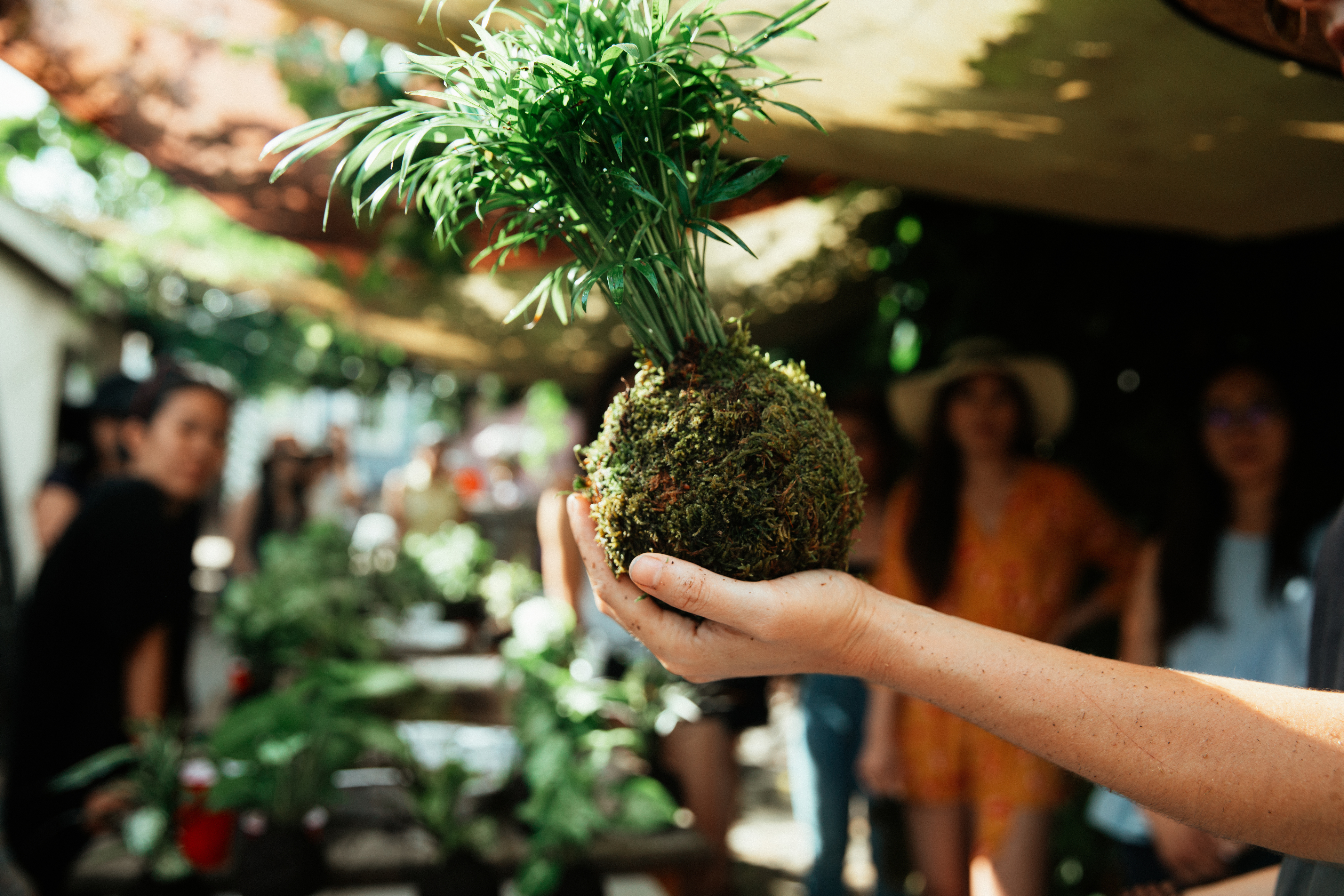As the holidays approach, people might feel overwhelmed by the expectation of purchasing gifts for friends and family. This can be a great opportunity for your library to provide a program or highlight resources on frugal gift-giving and provide some budgeting education, too. Frugal doesn’t have to mean shabby, but can instead be heartfelt and useful.

Lean and green
As part of the Informed Consumer series in 2018 and 2019, we offered Lean and Green workshops to teach students how to make DIY gifts on a budget. In November 2018, the Lean and Green program featured a local plant artist who guided the students in making mini succulent kokedamas, or plants in a moss ball.
We invited the artist back in December 2019 to teach students how to make air plants in hoops, along with a master gardener from Penn State Extension who presented on easy-to-care-for indoor plants. Lean and Green gifts were a bright and cheerful offering as we headed into the cold winter season and tied in well with our plan to integrate some “lean and green” money management tips and resources into the program.
We capped attendance at the workshops so we could provide all the materials at no cost to attendees. While the students made gifts for the budget-friendly price of $0, we shared with them the cost of supplies and instructions so they could make them on their own for more family members and friends in the future.
Supplies for kokedamas
- Peat moss, $4.98
- Bonsai soil, $14.95
- Sphagnum moss, $3.49
- Succulents, as low as free, if using cuttings, otherwise, $2
- Waxed string, $2.99
- Total: $28.41; makes several kokedemas
Supplies for air plant hoops
- Air plants, $13.95 for 15
- 4-inch embroidery hoops, $13.32
- Plant glue, $7.00
- Spray paint, $3.98
- Twine, $2.97
- Total: $41.42 for 15 air plant hoops, $2.74 each
Additionally, we provided worksheets for setting up a holiday spending budget and a pop-up library consisting of selected books from our collection on budgeting, inexpensive gifts, DIY crafts and plant care that students could check out. We also offered cookies and cocoa to make the event festive.
Budgeting was not the sole focus of this workshop and likely not the reason many students attended. From talking with attendees, some mentioned that they brought along friends because they thought it would be a fun and free activity to do together, and others wandered in to find out what librarians were doing with piles of dirt and yards of twine.
While thinking critically about holiday spending and gift-giving on a budget was likely not at the forefront of their minds when they joined the session, students walked away with resources to help them plan budgets and skills they could use to make their own inexpensive gifts in the future. They also walked away excited about a library program and left us with ideas for future Informed Consumer programs.
Tips for a successful budget gifts event
- Find a marketing “hook”; our events were planned toward the end of the semester when students are looking for a time to de-stress.
- Encourage participants to bring friends, since crafting is more fun in groups.
- Focus on the fun, sprinkle on the education. Your participants are there to make something, but they can learn while they do it.
- Offer snacks and make it festive.
- Highlight resources from the collection on a similar theme.
Going forward
We have not yet attempted to replicate the Lean and Green programs in 2020. The COVID-19 environment is not particularly well-suited to in-person, hands-on crafting workshops. However, we are exploring some ideas for online workshops and videos for DIY projects using common household items and are excited that by offering virtual workshops we can expand the Informed Consumer programs from just the University Park campus to Penn State’s other campuses across the state.
Lauren Reiter and Emily Mross are librarians at Penn State University Libraries. This blog post is part of a series written by ALA's Financial Literacy Interest Group and sponsored by the FINRA Investor Education Foundation.


